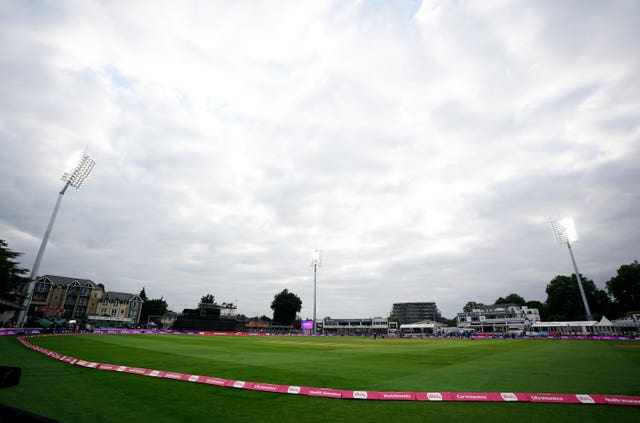
Several Essex players were subject to racist abuse and discriminatory treatment, an independent report has found.
Reference to players’ ethnic, racial and religious origins was “entirely normalised and tolerated behaviour” within the dressing-room culture between the mid-1990s until around 2013, under the misguided belief that it was acceptable ‘banter’, according to a report by Katharine Newton KC released on Friday.
Newton was commissioned to carry out the report in 2021 after allegations of discrimination were made by former Essex players Jahid Ahmed, Maurice Chambers and Zoheb Sharif. Essex are now dealing with the process concerning any individuals where sanctions may be imposed.
Essex County Cricket Club has today published the independent report into historic allegations of discrimination, following a comprehensive and thorough investigation by Katharine Newton KC.
— Essex Cricket (@EssexCricket) December 8, 2023
“Those at the receiving end of this treatment were too scared to speak up for fear of damaging their prospects of selection and progression,” Newton said in her report conclusions.
“In any event, there were no effective mechanisms for raising such concerns.”
Her report also found a lack of understanding of the needs of Muslim players at Essex.
Newton also found that the club’s former chairman, John Faragher, used racist language during a board meeting in 2017 and that the club failed to properly investigate a complaint about the language used.
The report also found Faragher “interfered in the election process by using intimidation to try and dissuade a candidate from standing for election” to the club’s general committee.
Essex said they acknowledged Newton’s findings and are “committed to addressing past incidents of discrimination against former employees”.
“All victims involved throughout the investigation have received an apology from the club,” an Essex statement read.
“Their courageous actions to report incidents of discrimination during their time at Essex has been pivotal in getting to this stage.”
Essex chair Anu Mohindru said: “It is evident from Ms Newton’s findings that there have been some fundamental errors in the past, which don’t reflect the Essex of today.
“Significant progress has been made across the club to build a workplace that values and respects every individual, regardless of their background, identity, and beliefs.
 Essex have acknowledged “fundamental errors” were made at the club (Zac Goodwin/PA)
Essex have acknowledged “fundamental errors” were made at the club (Zac Goodwin/PA)
“This extends to the fantastic community work being carried out across the region and we understand our responsibility to our local communities as the county club who represents them.
“I have personally met with the victims to apologise on behalf of the club and explain the work carried out by the board in producing the report.
“Following recommendations from the independent committee, the club is now dealing with the process concerning any individuals where sanctions may be imposed.”
Newton said in the summary report that she had upheld “a number” of complaints of racially discriminatory conduct, and that the perpetrators were named in the full report she sent to Essex.
“However, these individuals are also being investigated by the ECB and the club will need to assess whether publication of the report could prejudice the ECB’s parallel investigation, which remains on going,” Newton wrote.
Newton said one of the players was given the nickname ‘bomber’ following the September 11 terrorist attacks. She also found that the phrase ‘curry muncher’ was “commonly used” in the dressing room to describe individuals of South Asian heritage.
She did not uphold a complaint from Player 1 that his release was the product of Islamophobia at Essex.
Newton said: “I concluded that the relevant decision-makers were genuinely of the view, untainted by discrimination, that Player 1 would not have had a realistic chance of playing in the First Team, as there were better players with his same skillset.”
She did criticise the manner in which Players 1 and 2 were released, however. Player 1 said he was told he was being released at lunch in the second XI’s penultimate match of a season.
Newton said: “The manner in which he (and others) were released was inappropriate and unprofessional.
“These individuals were being told that their careers at the club were over. News of this nature should have been conveyed at a formal meeting in a private room at the club, and not by the side of the pitch and/or outside the dressing room as occurred in other cases.”
A third player “was repeatedly subject to racist treatment” by another player who offered him bananas “in a manner which was unequivocally racist”.
Newton said this was done in the dressing room and on the journeys back from fixtures, and that the team’s coach “was aware of this racist conduct”.
“Immediate action should have been taken against the individual; yet nothing was done to stop the behaviour,” she reported.
“Given his position, the coach would have played an influential role in setting the tone and culture of the team. His failure to stop this behaviour sent a strong message to the squad and staff that this conduct had been condoned.”
The third player also had a banana thrown at him by a player who was brought to the club on trial, Newton found.
The newly-established Cricket Regulator said it had received copies of Newton’s reports and would now consider them as part of its own, ongoing investigation of Essex.


Comments: Our rules
We want our comments to be a lively and valuable part of our community - a place where readers can debate and engage with the most important local issues. The ability to comment on our stories is a privilege, not a right, however, and that privilege may be withdrawn if it is abused or misused.
Please report any comments that break our rules.
Read the rules hereLast Updated:
Report this comment Cancel